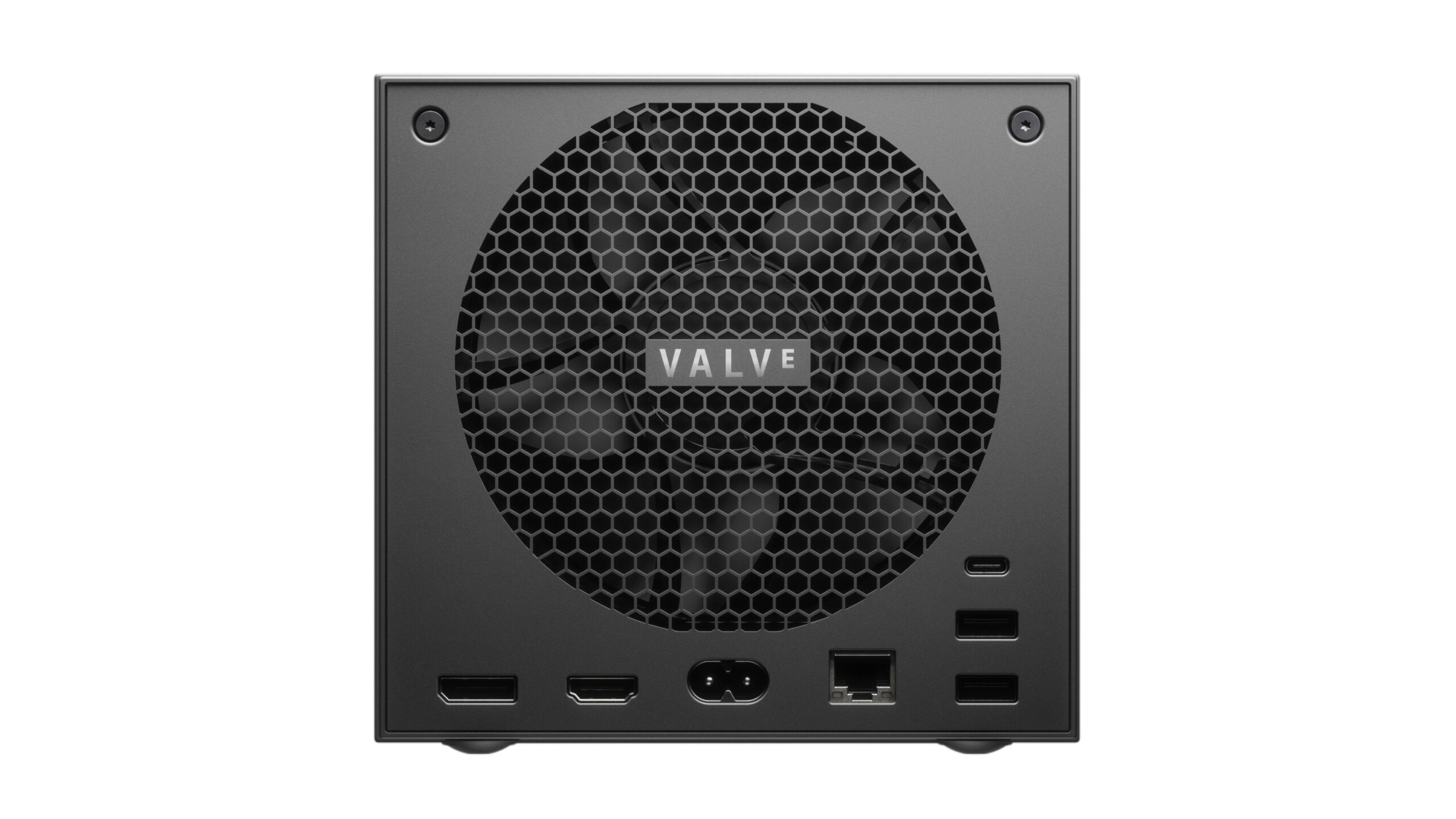An article from this weekend that seemingly got buried by soundbites about the Steam Machine price in the same interview, but given that we have no information on price, this seems way more interesting to me. I mean…I basically self-select games that don’t use these kinds of anti-cheat at all, but this is important information for a lot of people, especially if you’re looking for an off-ramp from Windows and still want to play some of the most popular live service titles.
Lots of games that ship with kernel level anticheat have an android port that doesn’t have that feature because android (also linux) similarly doesn’t hand out root access, let alone kernel access to anything in userland.
Huge example being Fortnite.
Already ignoring the fact that kernel level anticheats have well known bypasses, cheaters can also just use the Android version to make cheating easier if that was really an obstacle.
Anyone peddling kernel anticheat as a requirement is just using it to cut costs in running moderation staff. Epic Games specifically is just being a dick to linux because they know they have zero leverage in that market, and don’t want to give Steam more traffic.
All Valve really has to do is sell enough units to tip the percent of linux users that these publishers would not want to miss out on. That’s how so many updated and expanded with the steam deck. Currently the estimate is about 4 million monthly active users on a linux platform. I think if they can reach 10 million (I think 6-7%), it would be enough to incentivize the change.
I never would have thought Microsoft would allow Halo Infinite or MCC on linux 5 years ago, but they actually changed their minds because they knew people wanted to play on the steam deck. I would even take a guess that the new CoD stuff will shortly follow since MSFT is taking a more open platform approach anyway.
EDIT:

Oh this might be what pushes larger companies to drop kernel level anticheat! That would remove the main reason that keeps my gaming on Windows.
The fix is to not use local anti cheat at all which is proven time and time again to be the wrong strategy. It’s stupid and anyone who makes local anti cheat is either stupid or cheap or both.
There is nothing worse than playing multiplayer and having somebody who is cheating. Viable and promising games have been ruined by people cheating.
But I don’t see an easy way around the issue but these are the usual solutions:
- Reporting mechanism and admins able to observe cheaters and impose heavy penalties / permabans
- Add anticheat on server side that detect for cheating (e.g. measuring % hit rates / headshots)
- Anti cheat software on client that looks for common cheat hacks
- Stream everything. It’s all hosted on the server, nobody installs anything, limiting ways to cheat.
- Disincentivize cheating by not acknowledging people doing it in any way - no rare loot, no leaderboards, no material gain
- Make it a 3rd party problem - release the server or sell hosting and make it somebody else’s problem to police the servers (e.g. Rust / Minecraft servers)
Personally I’d prefer that multiplayer games obtain consent to install anti cheat and should certify through auditing that the anticheat software is inactive and nonintrusive when the game is not running. Perhaps operating systems could even provide hooks and hard guarantees that this is the case.
- Covered on steam with game bans, which can be handed by server admins
- Would be nice to see ngl. Whats not humanly possible should result in a game ban.
- Covered on steam by VAC, automated system checking for cheat signatures in user memory space
- Hard to do and not realistically feasible for the majority of people, screen capture with per pixel analysis tools would still work but thats not that big of an issue
- VAC and game bans also ban you from community features including trading your inventory, afaik you phone number and all accounts associated with it are banned
I will buy one of these if valve fixes gaming on Linux. I don’t even want one
They have been investing in proton heavily to make games work on Linux, most of my library just work out of the box, some with parameters and a very small amount of my 300+ games do not work. So when are you going to get your GabeCube?
I don’t know because they haven’t announced a release date
In the mean time you can check on protondb how much of your steam library is compatible with Linux using this link https://www.protondb.com/profile
- You can either link via the Steam api, or if your profile is public paste your profile link into the input.
- Then select the “By ProtonDB rating” and see how much of your current library is compatible.
Of the 474 games I have most are Gold or higher. 2 are Bronze (crashes often), 2 are Borked and 13 are awaiting more data to be rated. 60 even have native clients.
This is a huge deal for Linux gaming.
Please make this optional. I’d rather not have any third party kernel modules mucking around in my OS. I don’t use anything the requires this.
It is optional what games you purchase and install
Well yeah of course it’s optional already. If you don’t want that then you just don’t buy those games.
Currently kernel-level anti cheat isn’t available for Linux, so games that are released with multiplayer support don’t require it (e.g. games that enable Linux support in EAC).
If kernel-level anti cheat is supported by Valve, many of those games will start requiring it. So if you don’t want kernel stuff, there’s a real chance this development will reduce the number of available games in the future.
Yes but if linux gets popular those games will get linux cheaters and will be pressured to do something.
Not sure I understand - games with kernel-level anti cheat also still have cheaters.
I’m aware but games and players still want a strong anti cheating solution. There is no protection currently on linux for cheating.
The article only mentions TPM not 3rd party modules. I’m guessing the idea is that you will have to run an approved kernel.
Kernel modules can be installed, loaded, and run without a reboot in Linux. TPM support would just ensure that the firmware/kernel and modules loaded at boot are expected.
Edit: basically, TPM support wouldn’t really do what a game dev would want for a kernel that can be modified at runtime, unless I’m missing something
Yeah, unless valve starts restricting root access when secure boot is enabled, you’re probably right.
Irrelevant to me personally but I’d like to see it cause more windows users to jump ship
TBH, I kinda get the feeling that’s what most of the hype surrounding the Machine is. People hoping it sells well, but not necessarily people planning to buy one for themselves.
If I didn’t already have a dedicated living room media machine I most certainly would buy this. The emulation potential while chilling on your couch without being at your desk is very appealing to me.
There’s definitely hope that it synergises with what’s going on due to the steam deck.
Personally, I can’t wait to buy two controllers and the machine. The flawless experience of the deck is amazing. And because it’s Linux, I’ll just install YouTube, jellyfin, any app as a non steam game and I’ll have the perfect smart tv appliance.
Stream games, play games, run any program I want through steam big picture - I can’t wait to bury my Shield.
I’ll never have to connect a tv to WiFi again. I’ll never see a fucking ad for anything on my TVs home screen again. With KDE connect my phone is a remote. I’m so fucking pumped.
I jokingly told a few redditors that they are doing A LOT of the marketing work for the Steam machine. They didn’t like that at all, lol.
lol, they should be proud to champion what valve is doing for the Linux world
That being said I actually don’t have a desktop and would totally buy a steam machine if the price is right
I have no need for Steam products. Gaming emulators have been all I needed for years now. I don’t play the latest games so it’s totally fine for me too.
Speaking of irrelevant
I have this feeling that even if valve makes it work, rootkit anticheat devs will push updates that intentionally make it not work again. Probably with more claims like the majority of cheaters being linux users
If you’d read the article, Valve says they’re working with anticheat devs to come up with a solution together. This can only happen with their cooperation, if Valve somehow could bypass it on their own that would represent a vulnerability that should and would get patched.
They’re not just making that up. Cheaters migrated to Linux because it was easier to bypass the anti-cheat protections there. If the anti-cheat is equally effective in both operating systems, they’ll have no reason to cut off a portion of their customer base.
I would love to see actual sources for this. On both sides.
Every time I’ve tried looking up numbers (usually because of a passing interest, and never any level of in depth research) I’ve come back with interesting tidbits like “the total number of cheaters banned in one month was greater than the total lifetime number of unique Linux users of the same game (sometimes an order of magnitude or more greater).” With that statistic being pretty consistent across games and time periods.
I can already tell you that you’re looking at wrong numbers and thus coming to the wrong conclusion. Of course the total number of cheaters will be bigger on windows, 94% of PC gamers play on Windows. That’s like saying Monaco is such a poor country because their GDP is only 30 million compared to the 30 trillion of the US GDP. Except Monaco isn’t poor, the US is simply magnitudes bigger than Monaco.
If you comparable numbers you should compare the proportions of cheaters in relation to the whole userbase of the platform.
So, do you have sources for accurate numbers?
I never said I have a source for accurate numbers. I said whatever numbers you’ve looked at so far are not the numbers you should be looking at and then added what kind of numbers you should be looking at.
On the one hand, I don’t give a fuck about anti-cheat, because games using the kernel-level version tend to be giant multiplayer cesspools of little value.
On the other hand, I want Windows to lose the war.
I hope Valve can find the balance between these two extremes.
Are they working on giving the worst and most useless companies kernel level access to my pc?
Perhaps. Of course, if you were able to type that sentence out, it also means you know what to avoid if that’s important to you. I will be, because it’s important to me, too.
This could be huge. I hope they find a decent middle ground.
Surprised they (Denuvo, etc - not Valve) don’t just hard require SELinux.
SELinux protects systems from bugs in software. Not against users with full root privileges using their own hardware.
Still not going to convince some stubborn hold outs like the rust guy. Nothing will ever convince them.
The market will - and it’d be foolish to underestimate the forces valve will spark by making viable alternatives mass market.
I wouldn’t expect the Machine to be any more popular than the Deck, which already wasn’t enough to convince holdouts. In fact I would bet the Machine will sell much less than the Deck, since that had a more unique niche carved out for it.
I think the hope isn’t that “maybe this will be big enough”, but “maybe together they’ll be big enough”. Who knows, though. It got a lot of hype on reveal but people are fickle sometimes.
I would not be surprised if the work they’re doing here would be compatible with the Deck. It was just less of a priority for a handheld than a living room machine.
If devs want to support one, it’ll be no problem to support the other. But I doubt devs who already refused to support one will suddenly change their minds.
They refused to support the user space anti cheat. The work they’re talking about doing here is aiming to be the same sort of security they get on Windows. Low level. I have no idea how that works with Linux’s software licenses, but they said in the interview that this might be an exception made only for SteamOS.
When Linux market share hits 20% it would be a monumental achievement, and developers would probably still avoid it.
Don’t get me wrong, I moved to Linux this year. I want to see it gain traction in the gaming space.
It’s just not likely to happen any time soon. Loads of very basic use cases are a fucking shitshow because of a lot of reasons.
Just getting sunshine setup with a virtual display is a nightmare on Wayland without scripts to enable/disable displays and without being in front of the computer you want to remote to, because the simple logic of “if this display =off, then other display =on” is not a thing.
Here’s aiming to be hopeful…
I remember back when playing DRM video in a web browser on an open source operating system seemed like a worrying impossibility. Many sites stayed stuck on closed-source flash players for that reason alone. It was a while before we ended up with this solution I only partly understand - where the DRM decoding is handled through some kind of trusted block, that generally doesn’t have full OS control?
Do you get full HD video from streaming services these days? Last I checked, the best of them only top out at 720p without Windows.
Yeah I get 4k with Firefox on cachyOS
Interesting. Did this happen recently? When all of the streaming services starting raising prices, I started cancelling. Which ones give you full HD? Do you need to go out of your way to get there, or will regular old Firefox do the trick? Does it need TPM enabled or anything like that? I was looking to re-up Amazon Prime in the very near future, but when watching on my web browser, a show like Vox Machina was just a blur factory, and it was easier to pirate the show than it was to stream it legitimately.















